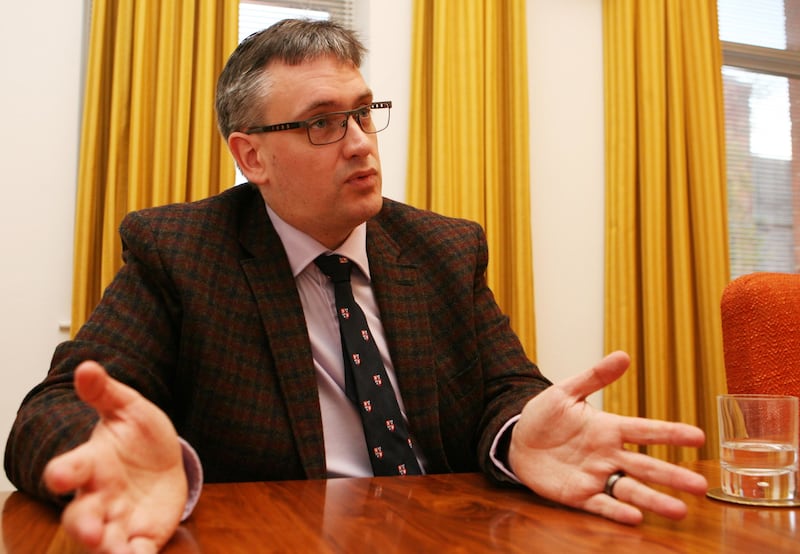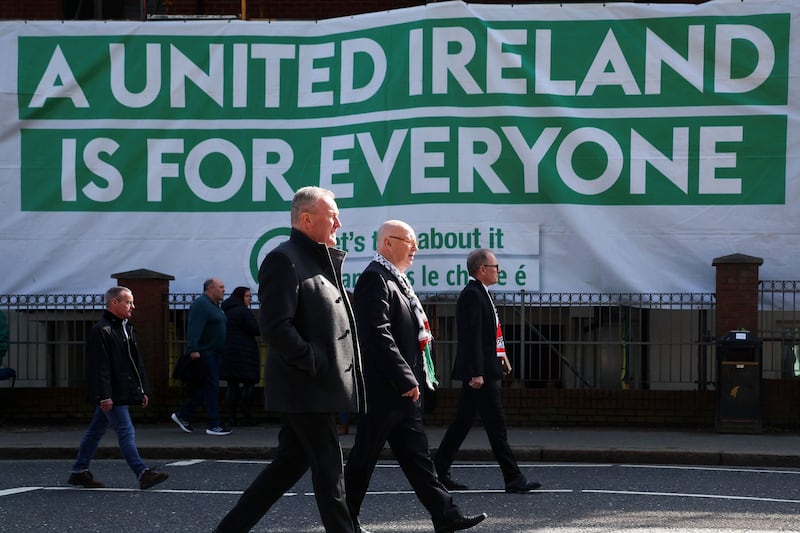AS we approach the peak of the coronavirus pandemic and individuals and households are social distancing, self-isolating or in quarantine, Passover and Easter inevitably look and feel remarkably different this year.
Families are separated. Churches are closed. Death is in the air and on random surfaces. People are shaken and hurting.
Despite this, indeed because of it, these holidays take on a new power in 2020.
With regard to Passover, the whole world can now, as never before, identify with the Israelites hiding in their houses as the Angel of Death passes by, with a deadly plague striking at the heart of home after home in Egypt.
Then, as now, the plague was an invisible killer. Then, as now, the land was filled with palpable fear and immeasurable distress as the plague rampaged through.
Then, as now, the plague was no respecter of social or economic status or political rank. Then, as now, loud wailing was heard throughout the country, as many thousands expired.
The only homes that escaped were scrupulously following the instructions handed down to them, to remain in lockdown inside their homes - after wiping the blood of a spotless male lamb onto the top and sides of the doorframe.
What a surreal context for that first Passover. How utterly terrifying. Sitting around a table, they ate the roast lamb with a knot in their stomachs.
With respect to Easter, then, as now, terror abounded. At Jesus' arrest in AD 33, his disciples scattered in panic.
Even courageous Peter, the Rock, melted in the heat of a courtyard fire in fear.
He felt acutely the danger posed to his personal safety by what issued from the mouths of people standing nearby. Sounds familiar...
The disciples' lack of preparedness was inexcusable. Jesus had repeatedly warned them to be ready for the terrifying reality that they would encounter in Jerusalem.
He had even specifically prophesied to them that they would abandon him and to Peter that he would deny him three times before the cock crowed.
Similarly, many of our governments have failed to prepare: Imperial College London warned back in 2016 that the NHS could not cope with a pandemic from Asia - it would run out of PPE and would be short of ventilators. The warning went unheeded.
Even when the virus actually appeared, our governments failed to take decisive action to develop tests or order the necessary PPE and ventilators.
Weakened by the sadistic scourging, Jesus carried the crossbeam of his cross until he could bear it no more and then, when he reached Golgotha, had long nails hammered into his heels and wrists, affixing him to the Cross
And let us not forget Judas, who, the Gospel of John tells us, was driven by love of money. He was willing to sacrifice Jesus and his fellow-disciples if doing so was for the betterment of his personal financial situation.
He shares much in common with advocates of the 'herd immunity' approach to coronavirus. These people are willing to sacrifice hundreds of thousands of the elderly, vulnerable, and general population on the altar of the economy.
In their ill-considered bid to rescue the economy, they have revealed to all the callousness of their hearts, even as they demand an end to lockdown before the curve has even peaked.
Jesus knew what he needed to do to save us. It traumatised him - hence his sweating great drops of blood (hematidrosis) - and yet he refused to be deflected from his mission to save as many lives as possible.
Similarly, the doctors, nurses and ambulance staff are well aware of the grave danger they face when they seek to save coronavirus patients.
Some are terrified, particularly when they are not given adequate PPE.
And yet, undaunted, they do what needs to be done, regardless of the terrible price they may pay.
True heroism and true love. As Jesus himself said, "Greater love has no-one than this: to lay down one's life for one's friends."
Ironically, Jesus suffered unmerited abuse as he dedicated himself to saving others.
He was spat upon, punched, beaten and scourged. His skin and subcutaneous tissue were ripped open, his chest, back, and legs lacerated and covered in blood, and his head left black and blue and red and penetrated by brutal thorns. The agony must have been horrendous.
But the psychological trauma was equally overwhelming - rejected by his own people, betrayed by one friend, denied by another, abandoned by the others, a victim of a terrible travesty of justice and mocked and ridiculed in the most harrowing manner.
Similarly, coronavirus healthcare workers around the world have endured punches, stonings, evictions from accommodation, expulsions from public transport, dowsings with bleach, being coughed at and spat upon and even being shot at.
Some are having "Covid, covid" or "You have corona" shouted at them. Undeterred by such cruel physical and psychological abuse even as they go about saving lives regardless of personal cost, they act in the spirit of Jesus.
With regard to his suffering and death on April 3, AD 33, Jesus endured incredible physical and emotional torture.
Weakened by the sadistic scourging, Jesus carried the crossbeam of his cross until he could bear it no more and then, when he reached Golgotha, had long nails hammered into his heels and wrists, affixing him to the Cross.
Struggling to breathe, he could only fully inhale whenever he braced himself and leveraged himself up on his nailed wrists into a T position.
He was the ultimate Passover Lamb, killed in Jerusalem on the very night when the Passover lambs were being slaughtered. Through him every mortal is offered peace with God
But the pain in the wrists was excruciating, forcing him to slump into a Y position to exhale. As the little strength he had waned and he could no longer pull himself up to inhale, he suffered death by asphyxiation.
Likewise, many suffering from coronavirus find it hard to breathe, particularly if they succumb to pneumonia.
With the immune system over-reacting and destroying lung tissue and causing inflammation, air sacs in the lungs fill with fluid.
In the words of one survivor, this sucks "all the life out of your lungs", making breathing painful and exhausting. He compared the experience to drowning. Without nasal oxygen and, in extreme cases, ventilation, patients may die gasping for air.
However much Jesus' suffering has correspondences in 2020, it was also unique. It went beyond the physical and psychological. It was profoundly spiritual.
Even the hardened Roman centurion in attendance was able to perceive that this was no ordinary crucifixion and that Jesus was the Son of God - perhaps it was the content of Jesus' cries and their sheer power, or the love, grace, selflessness, forgiveness and peace he displayed as he suffered, or his extraordinary shout of victory as he died.
Many then and since have concluded that Jesus was fulfilling Hebrew oracles about the Messiah's suffering and death, taking upon himself the penalty for our sins, paying the price for our salvation.
He was the ultimate Passover Lamb, killed in Jerusalem on the very night when the Passover lambs were being slaughtered. Through him every mortal is offered peace with God.
In a way Jesus' death is the equivalent of the coronavirus vaccine. The vaccine is the hope of all humanity for salvation from the current crisis. The quest for it has produced unprecedented collaboration within the scholarly community.
We pray that God prospers these efforts and that a vaccine becomes available within the next 12-18 months that is effective.
Jesus' cure for humanity's most overwhelming problem, its alienation from God, however, certainly does work - this is demonstrated by Jesus' resurrection from the dead, an event attested by his empty tomb, the many independent eyewitness accounts of his resurrection appearances and the radical transformation of the disciples from that moment in history.
This is great news: the most critical plight of humanity even today, its estrangement from God, already has a definitive solution.
The cure is even now available for anyone who chooses to receive it. That is the message of Easter.
This Passover and Easter, let's pay homage to Jesus' great achievement on the Cross. Let's not be like the religious leaders who lacked the humility and open-mindedness to investigate the truthfulness of his claim to be the divine Messiah, but simply dismissed and condemned him as a blasphemer.
The truth is, we need Jesus now more than ever - he empathises with us in our suffering and in our encounters with death. He offers us meaningful hope in the midst of all our despair. He invites us to enjoy peace with God.
Colin Nicholl is a biblical scholar and author. His books include The Great Christ Comet: Revealing the True Star of Bethlehem









